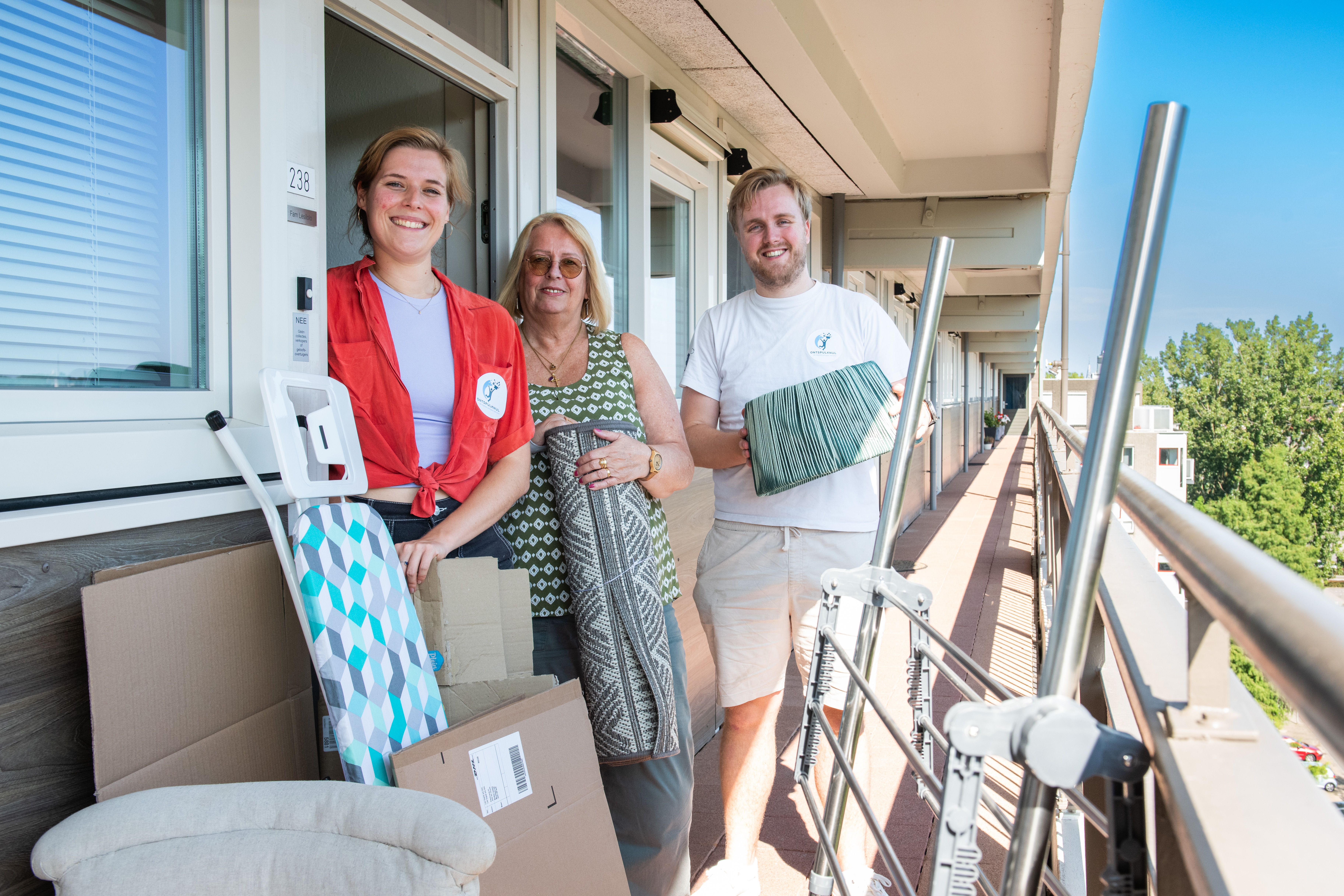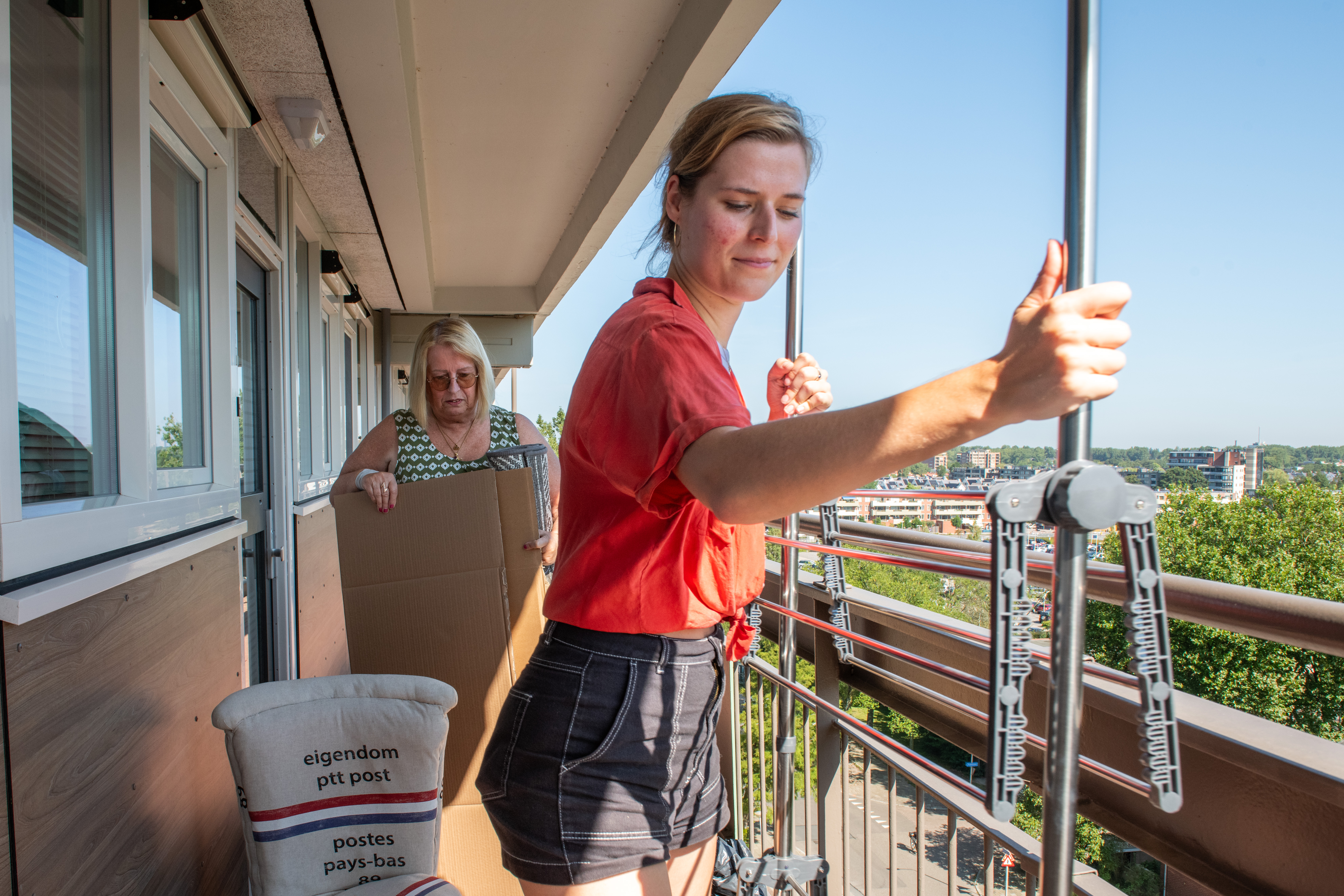From a life full of stuff to a life full of meaning with ‘De Ontspulknul’
Clothes, cabinets, lamps, figurines, boxes full of cassette tapes—former TU student Jan Bosma encounters it all in his battle against clutter. Through his foundation, ‘De Ontspulknul’, he helps people declutter in a low-threshold way, alongside co-founder Iris Eggink. “In five years, we want to help 100,000 people move from a life full of stuff to a life full of meaning.”
It might not seem like an obvious choice to start a decluttering foundation after earning two technical bachelor’s degrees (Applied Physics and Applied Mathematics) and a master's in applied mathematics, but for Bosma, it’s a logical step. “During my student days, I realized how much I enjoyed working in teams and looking at problems from different angles. At first, I wanted to become a consultant, but I felt a growing need to focus more on society."
A meaningful life without stuff
After graduating, Bosma participated in the National Think Tank, a program where recent graduates tackle social issues. “In my case, the topic was ‘aging meaningfully.’ I spoke with elderly people and visited them in their homes. It turned out that many were overwhelmed by an accumulation of belongings they were reluctant to part with, but which cluttered their lives and made things harder for them. Particularly when people want to move or pass away suddenly, the mountain of possessions can create significant problems. The threshold for decluttering is often huge, and many don’t know where to start. After that experience, I thought, ‘I need to do something about this.’ That’s why, in March, I founded ‘De Ontspulknul’ with Iris, whom I met during the Think Tank.”
Declutter Days and personal support
The foundation helps people in two ways. “We organize ‘Declutter Days’ in collaboration with local partners, to motivate entire neighborhoods to declutter their homes and donate unwanted items. We then take them to thrift stores or recycling centers. We also provide personal decluttering help to people who feel overwhelmed. Initially, we handled everything ourselves, but it soon became clear that decluttering a fully packed attic can take about 20 hours. Additionally, we offer continued support after the decluttering to prevent people from drowning in their stuff again. Doing all that with just the two of us proved too much, so we’re now focusing primarily on the Declutter Days.”
Declutter Days in Delft
At the end of August, the foundation organized Declutter Days in collaboration with the municipality of Delft and Wij West in the neighborhoods Tanthof, Buitenhof, and Voorhof. Joke and Ben Haak, both in their eighties, were already waiting on their doorstep when the Ontspulknul van pulled up the Beethovenlaan. Next to them were a few old garden chairs, cushions, and a sanding machine. “We’ve lived here for 38 years, and my husband keeps everything. I regularly tidy up the house, but the shed was completely full,” says Mrs. Haak. “The Ontspulknul flyer gave us the push we needed to start decluttering. I think it’s a fantastic initiative.” Berdien Lesilolo (66) is also pleased with the pick-up service. “I moved back to the Netherlands last year, after my husband passed away in Indonesia. I’ve bought a lot of new things but also received many items. Now, after a year, I know what I don’t need and all of that can go with the Ontspulknul.”
Less stuff, more happiness
With great patience and kindness, Bosma and Eggink speak to participants and collect their items. The morning is spent picking up things from people’s homes, while in the afternoon they set up at the drop-off point at the Buitengewoon neighborhood center. In addition to donating items, people can also have things repaired at the repair café. There’s a so-called ‘resource bar’ where broken small electrical appliances can be dropped off, and a professional organizing coach offers advice on decluttering the home.
According to Bosma, this first Declutter Day in Delft was a success. “We’ve only organized Declutter Days in Amsterdam so far, so we weren’t sure how many people in Delft would participate.” With over 200 participants, the day was such a success that a second Declutter Day will be organized during Neighbor’s Day on September 28 in the neighborhoods Tanthof, Buitenhof, and Voorhof. Are you curious or would you like to help? Contact Iris or Jan via the Ontspulknul website.
Socially engaged engineers
Are you, like Jan, a (former) student, teacher, or researcher at TU Delft and want to be more socially engaged? The WIJStad program encourages researchers, teachers, and students to explore current issues in Delft, with and for its citizens. This way, the university gives knowledge back to the city. For more information, contact WIJStad.


